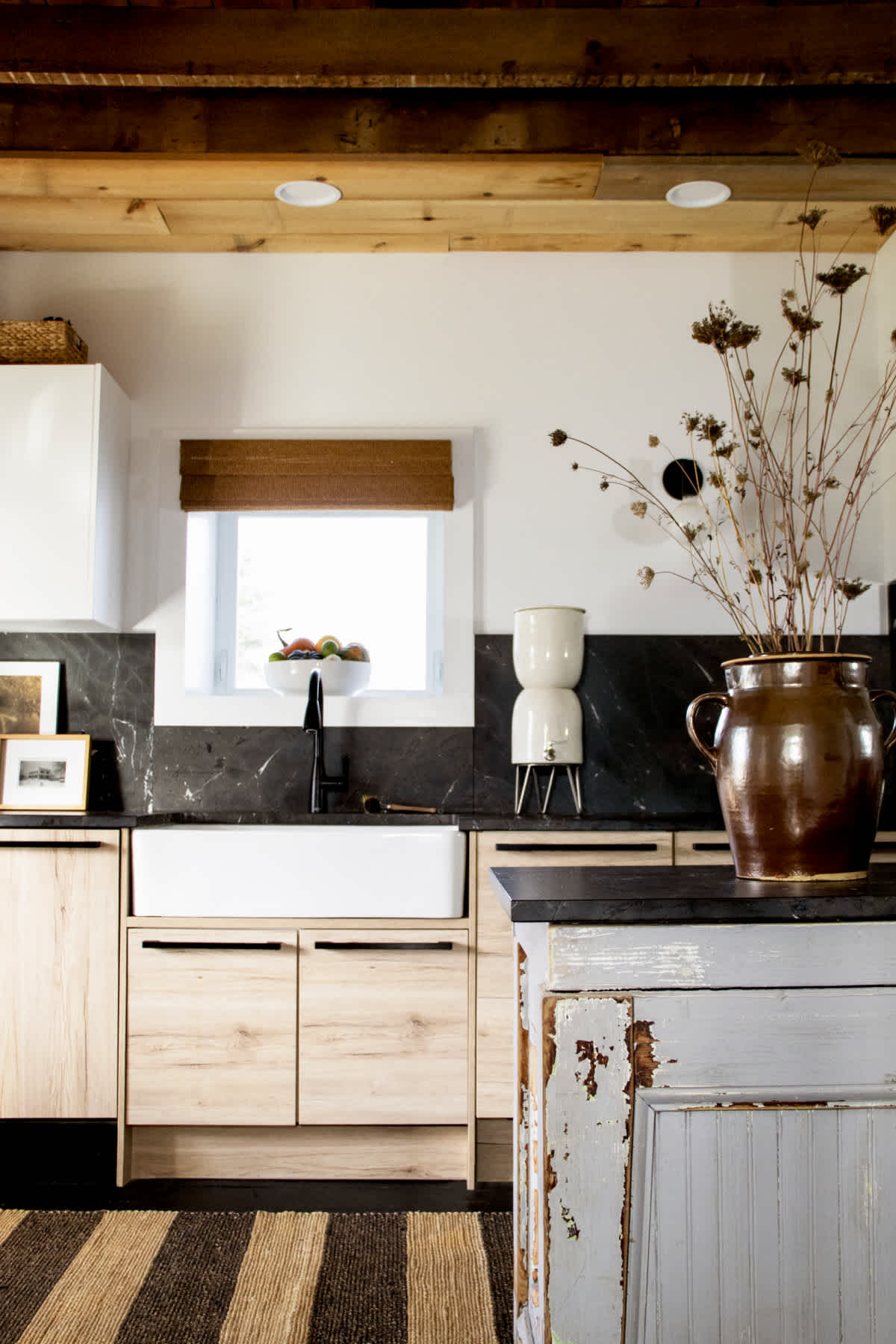How To
10 tips for creating a Wabi-Sabi inspired kitchen
Learn more about the Japanese philosophy that inspires minimalist, zen spaces that nurture real, tangible experiences.
Gabriela Alvarado
September 19, 2023
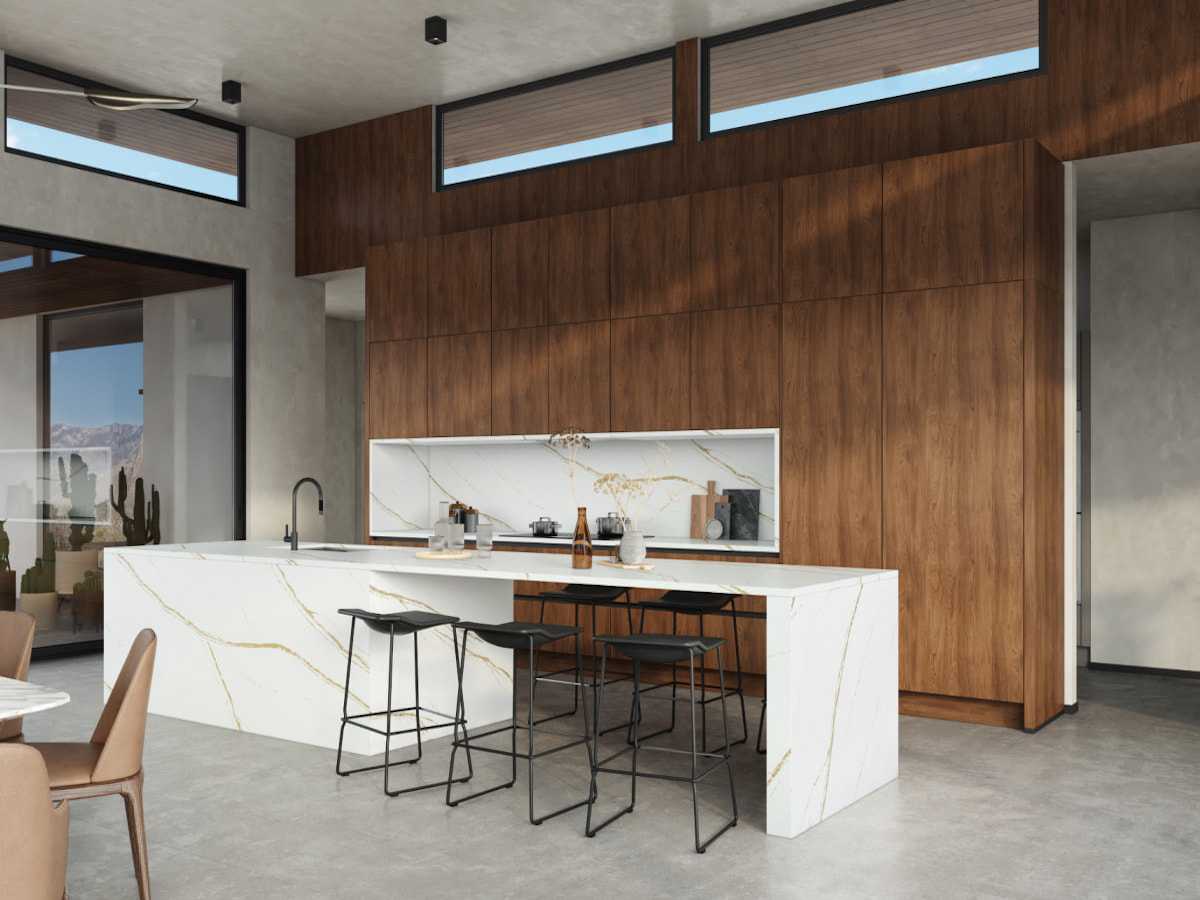
Perhaps you've come across the term "Wabi-Sabi" in glossy interior design magazines or while scrolling through Pinterest. With its growing presence in design circles, it's a term that's frequently appearing in our clients' briefs. But what exactly is Wabi-Sabi, and why is it becoming such a sought-after aesthetic?
Originating from Japanese philosophy, Wabi-Sabi has been embraced by a diverse range of creators, from artists to architects and, notably, interior designers. Though the concept of Wabi-Sabi encompasses a wide spectrum – from art and aesthetics to an entire way of life – in this piece, we'll hone in on its influence in interior and, specifically, kitchen design.
Wabi-Sabi celebrates the beauty of imperfections, the inherent allure of natural processes, and the understated elegance that comes with simplicity. It's a departure from the usual quest for picture-perfect spaces, urging us towards authenticity and tranquil minimalism.
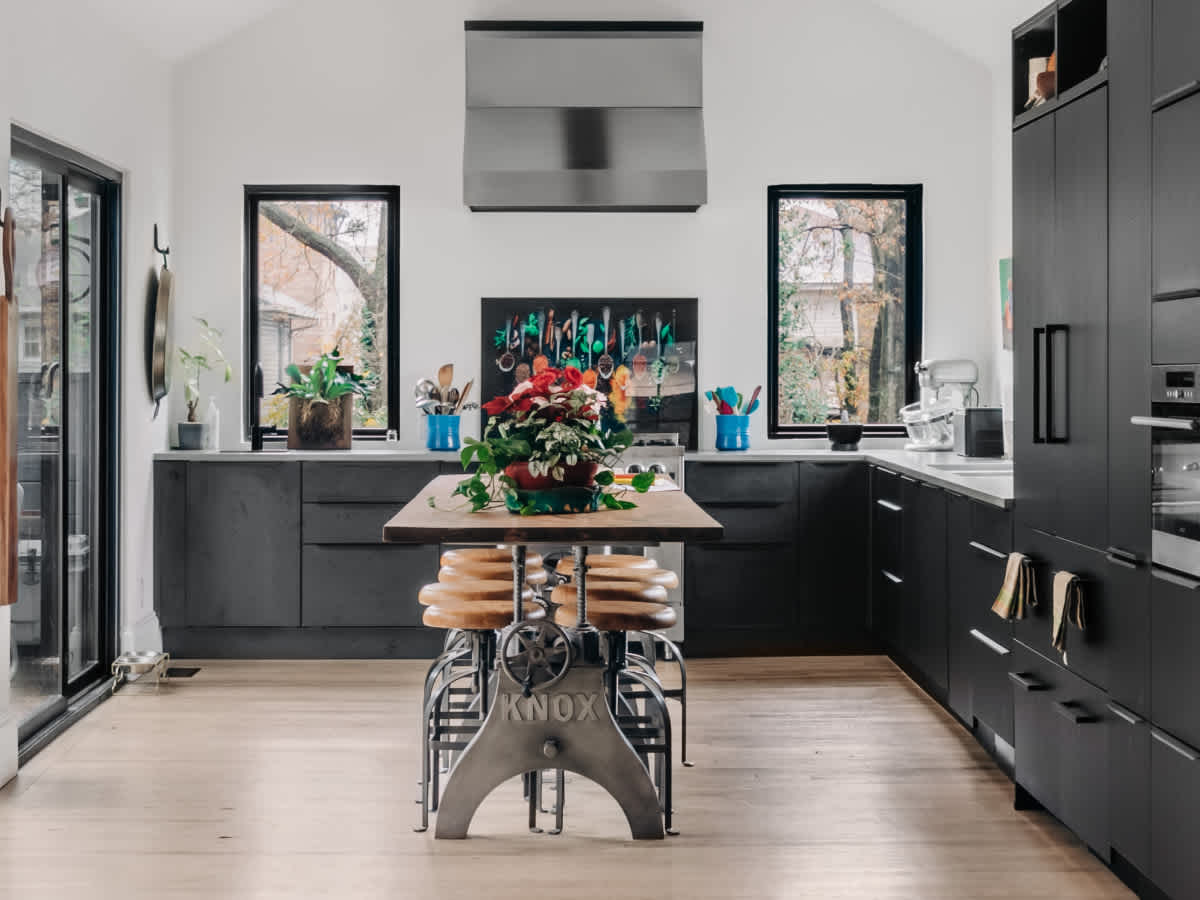
Modern design movements, especially Mid-century modern and minimalist styles, align with Wabi-Sabi's core principles. It's more than just visual appeal; it's about creating spaces that nurture real, tangible experiences. Imagine a kitchen that's not just functional but fosters genuine connections, interactions, and cherished memories. If you're intrigued by a design ethos that melds elegance with true authenticity, a Wabi-Sabi-inspired kitchen might just be your best design choice.
1. Get inspired by nature: use rustic and natural materials
Wabi-sabi respects nature’s imperfection and takes inspiration from it as nature is imperfect, asymmetrical, and changes its appearance with time. But aging is not considered as negative, to the contrary, it's part of what brings beauty to the world.
Use natural materials like wood, stone, bamboo, or clay. Their imperfections and natural textures will add authenticity to the design. These materials can be incorporated into your design through details like decoration or for example, a wooden beam in the ceiling. You can also choose wood cabinet fronts.
You can also look to nature for inspiration.
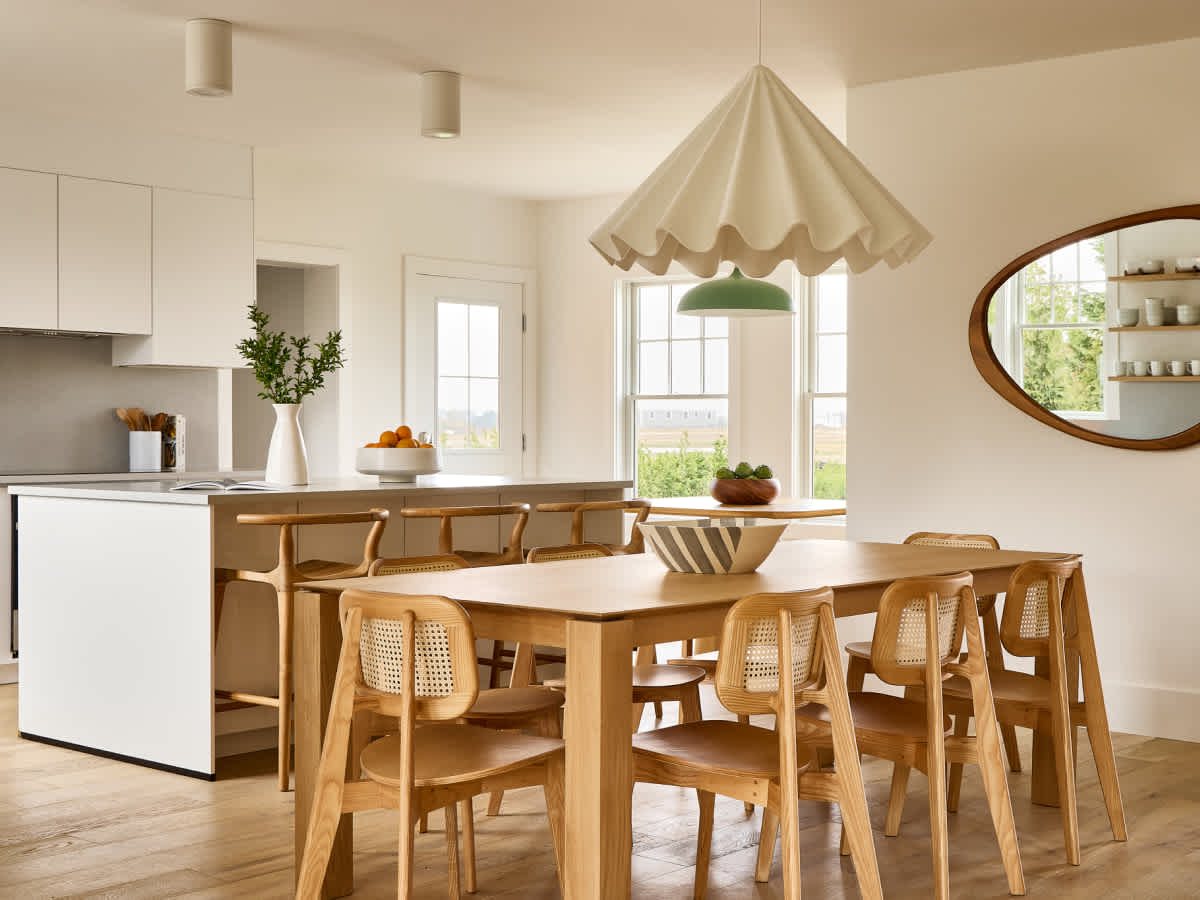
2. Choose subdued color palettes for a Zen vibe
Choose subdued, earthy color palettes that reflect the tones found in nature, such as browns, greens, off-whites, and grays.
If you love a gray tone for your cabinet fronts, make sure you combine it with natural elements like wood and stone in a lighter tone to maintain that calmness that wabi-sabi brings to a space.
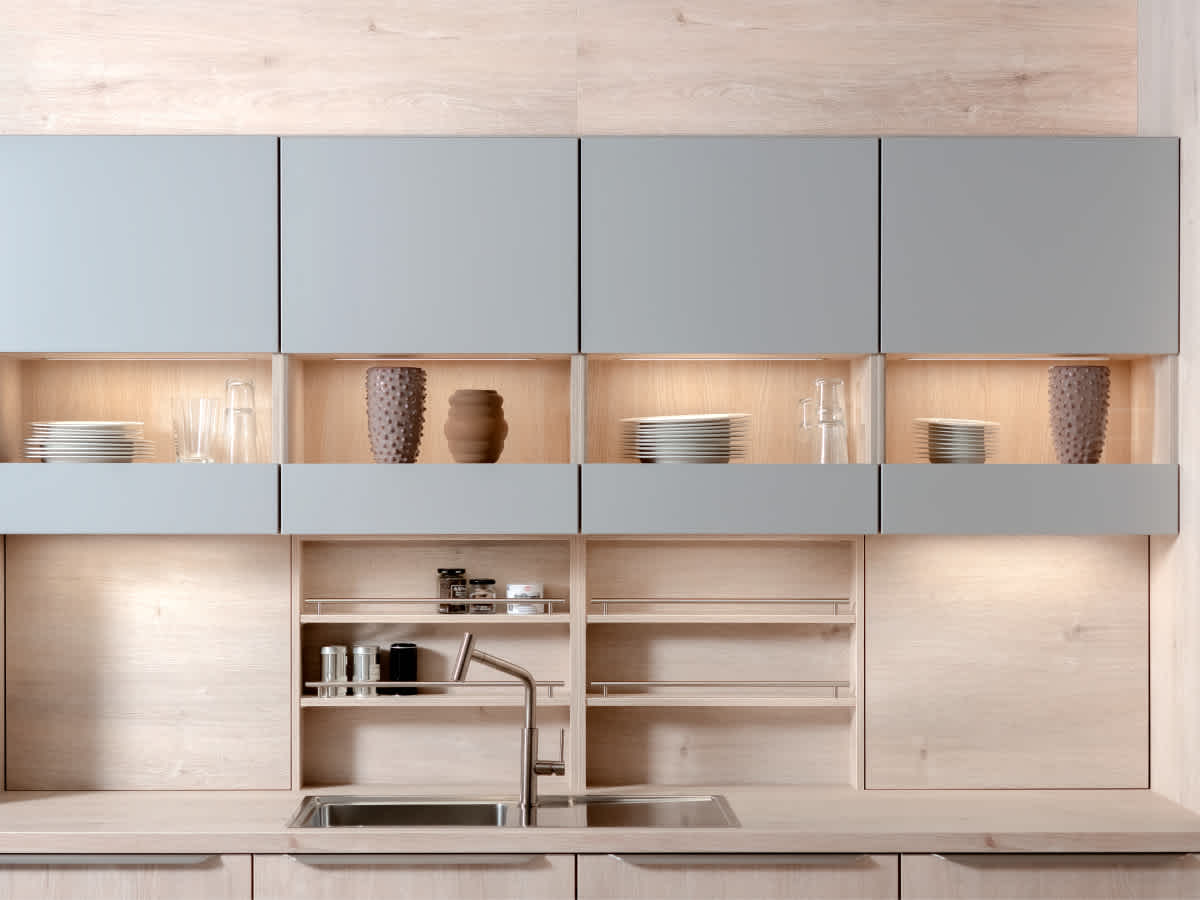
3. Handcrafted Items with meaning
Embrace artisanal pieces like handmade pottery, woven baskets, or wooden utensils. They carry the essence of the craftsman's touch, emphasizing uniqueness over factory-made perfection.
From a wabi-sabi perspective, beauty is also found in not only the aesthetics of objects but also in the personal meaning they have for people. So don’t be afraid to include your old pottery collection from around the world, and feel free to mix different styles, textures, and themes, the important thing is that it makes you feel something special.
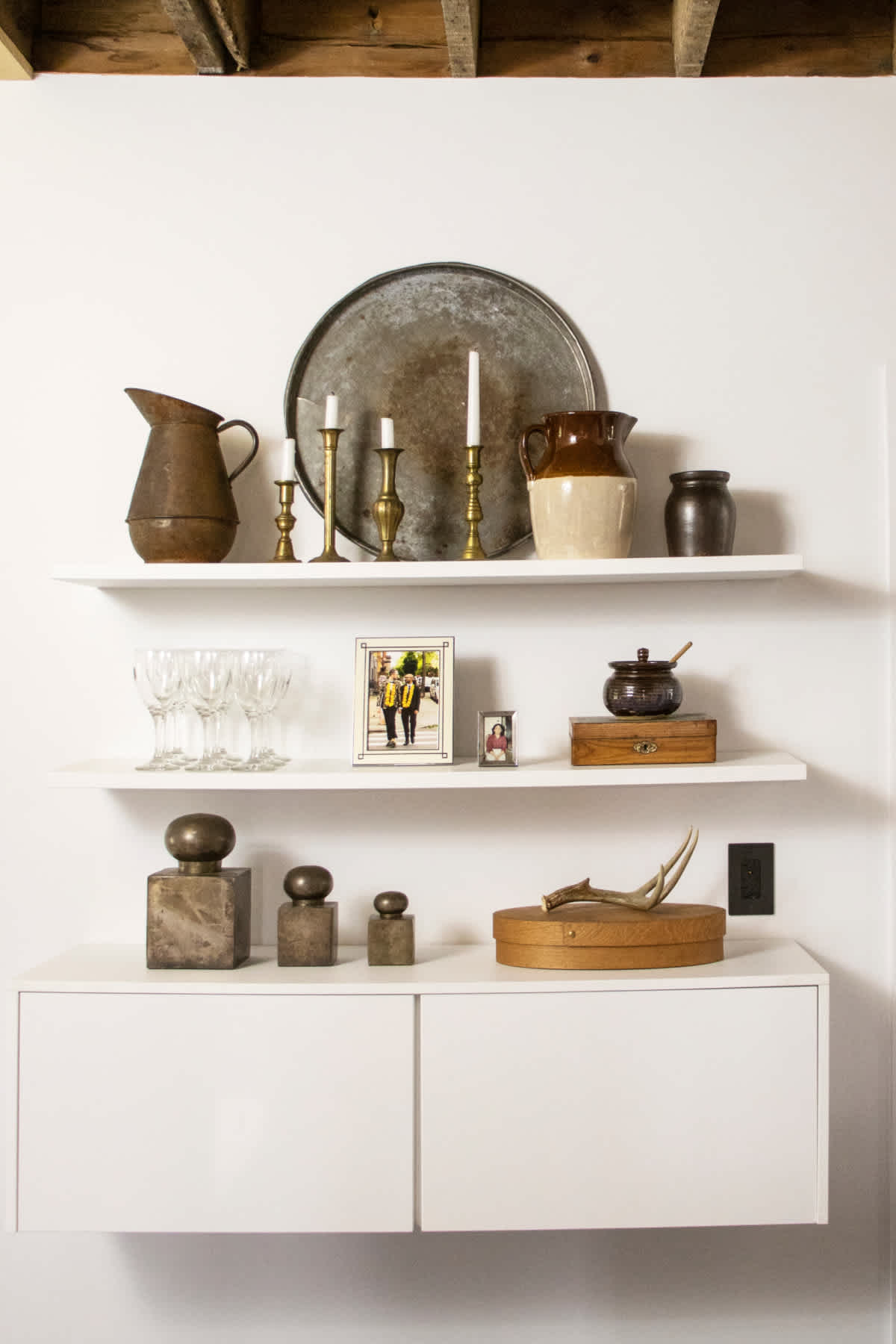
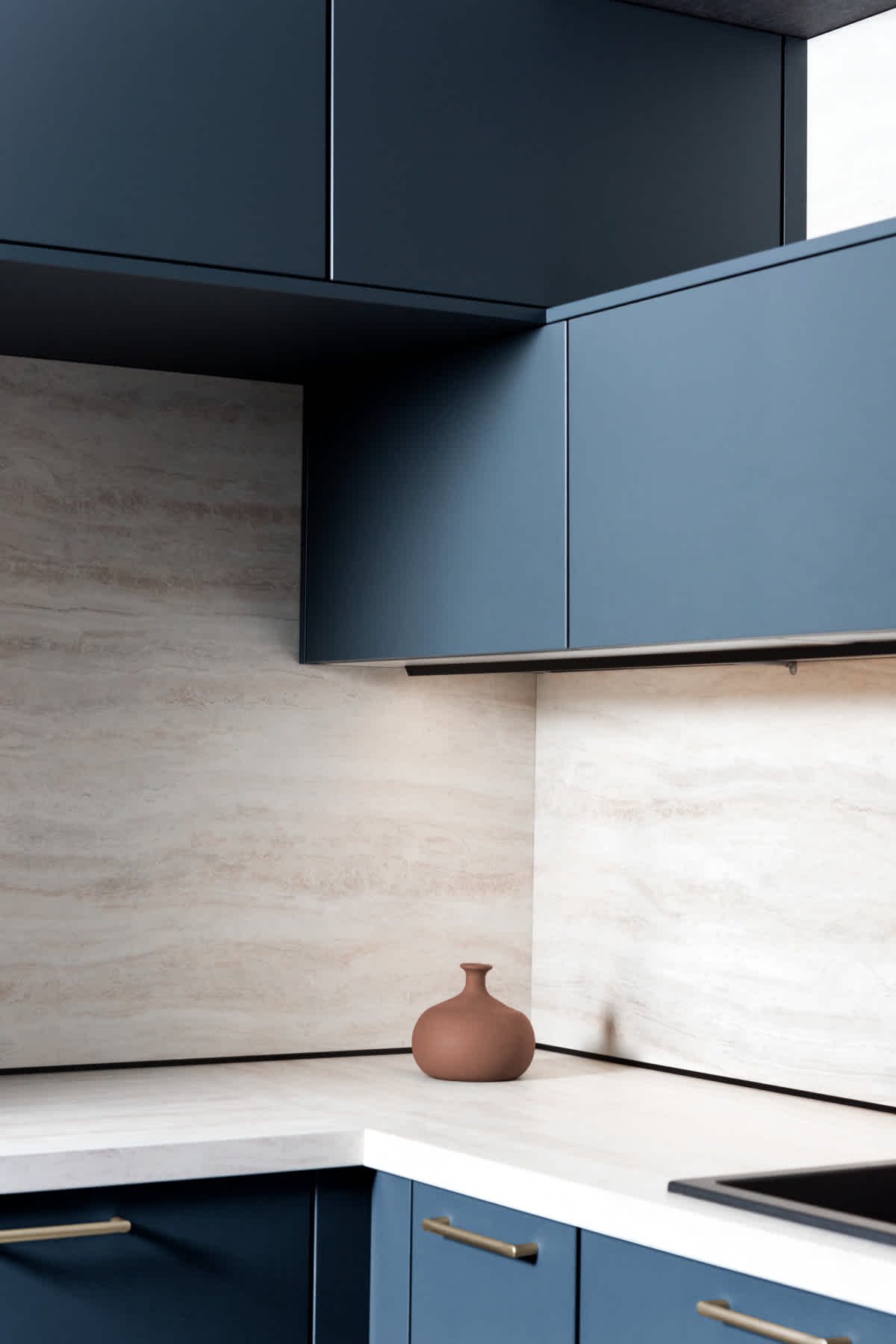
4. The beauty that comes with time
Celebrate the wear and tear that comes with time. Copper that tarnishes, wood that gains a patina, or stone that wears down, all highlight the passage of time and add depth to your kitchen. To incorporate this in your kitchen you can opt for a washed concrete back-splash that will wear with time, or copper decorations.
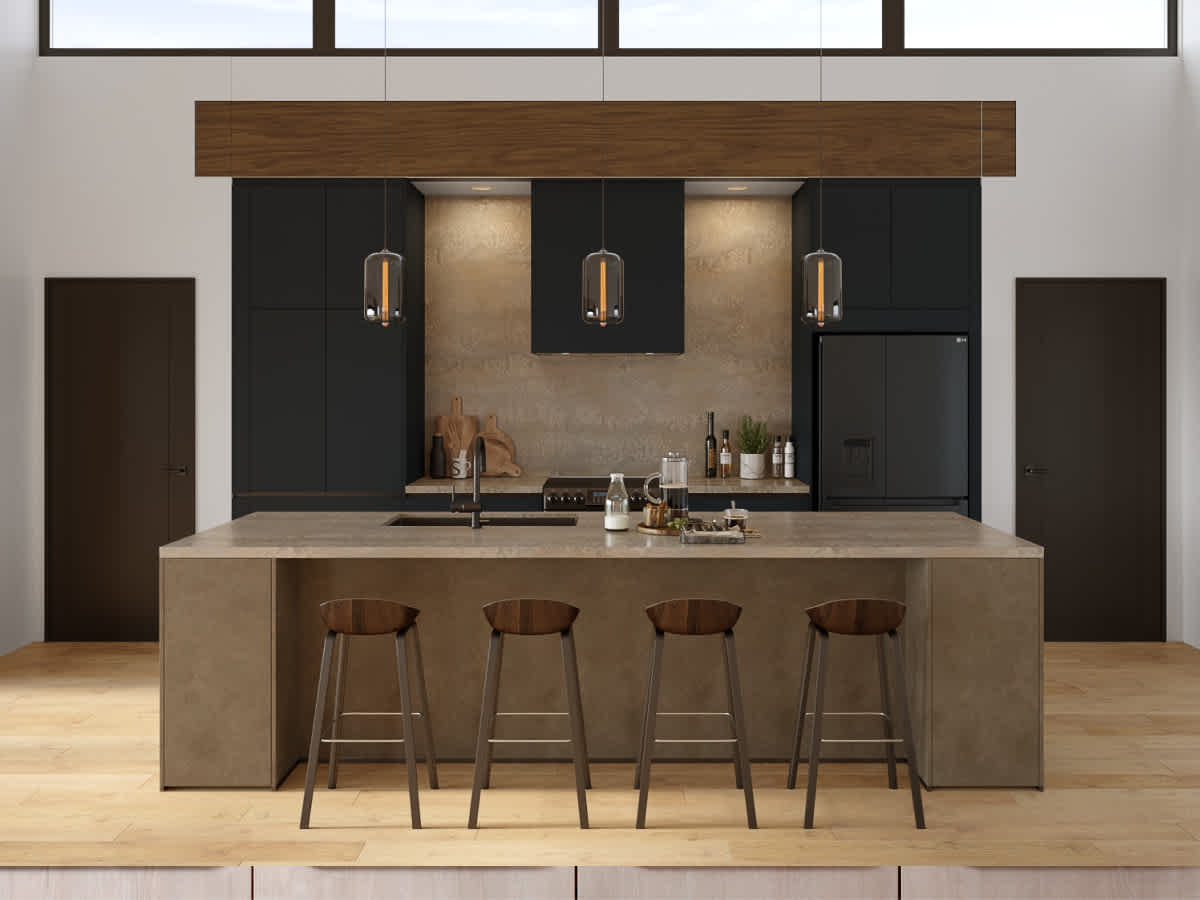
5. Minimalism and simplicity
While wabi-sabi appreciates the imperfect, it also values simplicity. This is the reason why modern kitchen style is the way to go if you want a wabi-sabi kitchen vibe. Modern kitchens are made with European cabinetry, which is characterized for its clean lines and handle-less doors, but also because they offer ingenious storage solutions that are key to keep countertops uncluttered and cabinets free of ornate designs. Less is more.
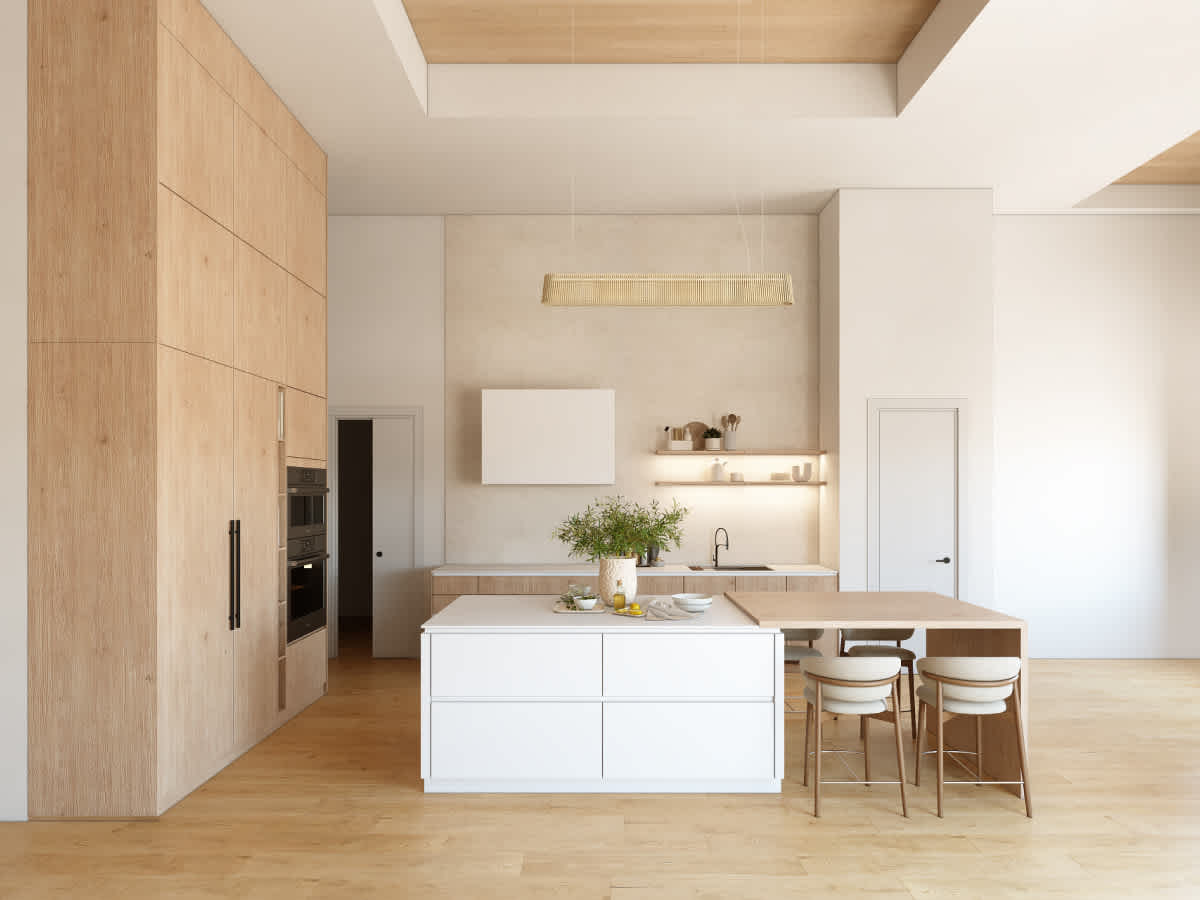
6. Open Shelving
Consider open shelving to display dishes, pottery, or spices. Not only does this add an organic feel, but it also reveals the "imperfections" in daily use.
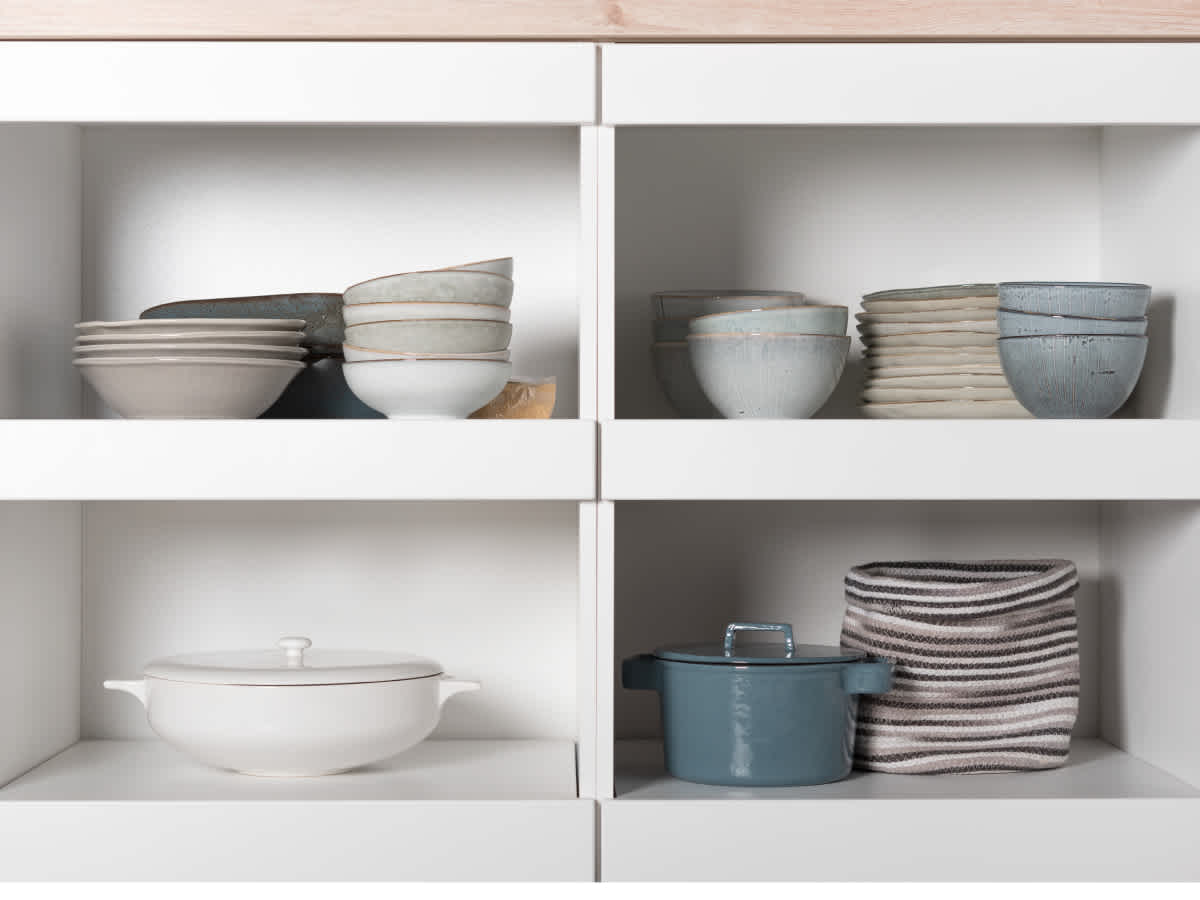
7. Rustic finishes and details
Instead of polished finishes, opt for a more rustic, tactile touch. For instance, a matte finish on countertops or unpolished wood can echo the wabi-sabi philosophy.
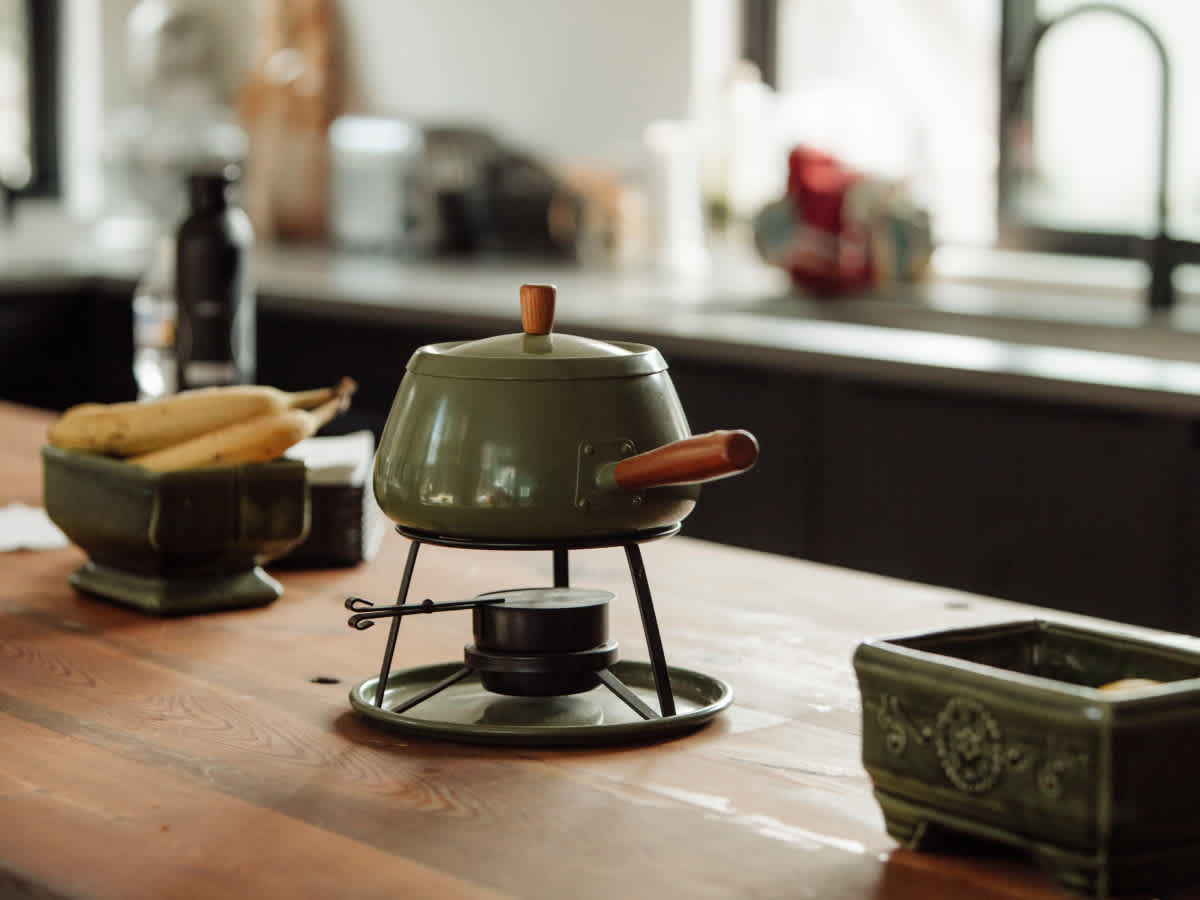
8. Furniture style
Furniture is an important element for your wabi-sabi kitchen. Whether it's the stools for your kitchen island or a dining table, opt for hand-made pieces that use natural materials and have some level of imperfection. For example, stools made out of rustic wood where all the wood marks are visible, even scratched or other aging and usage marks.
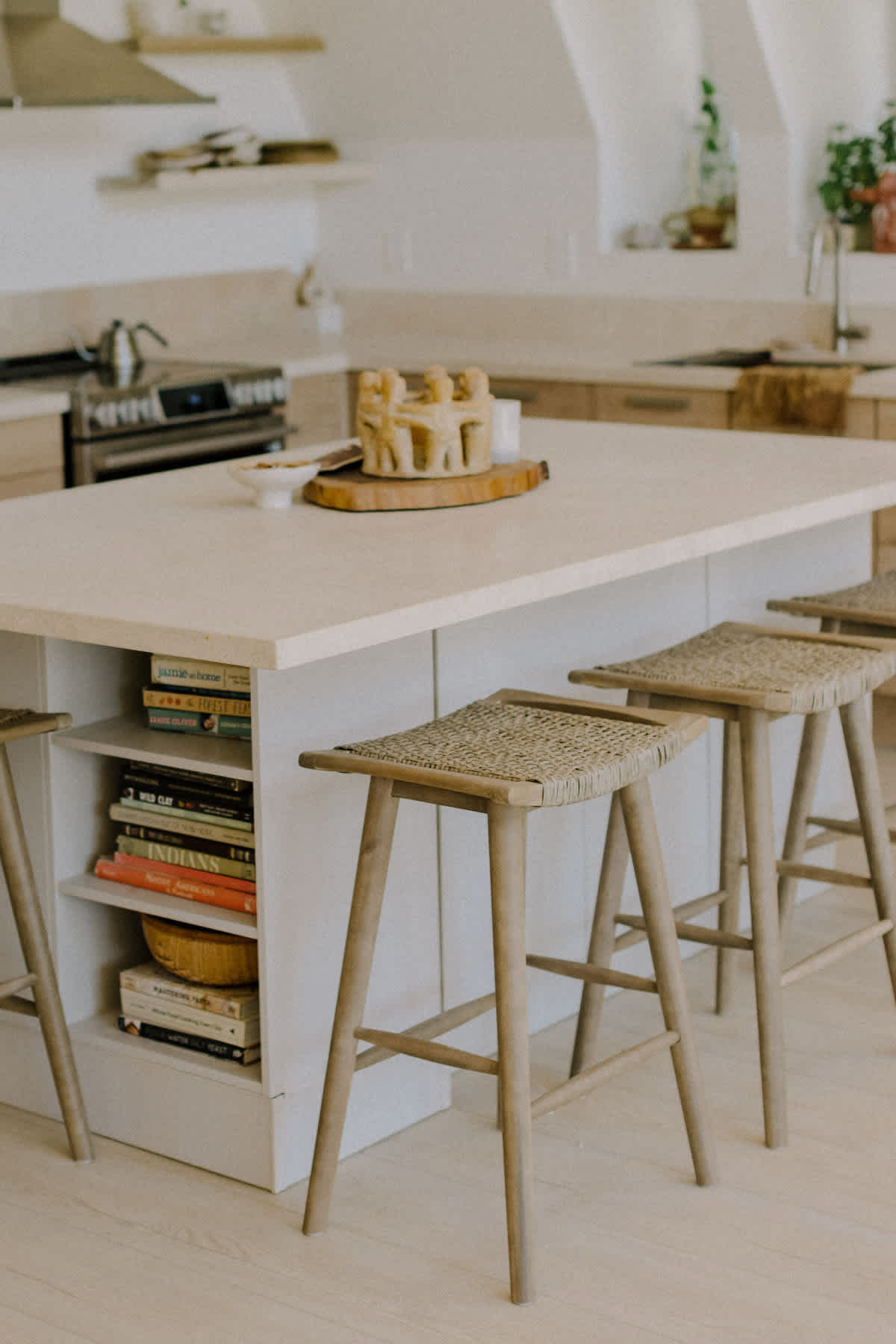
9. Soft Textures
Incorporate textiles like hand-woven rugs, cotton towels, or linen curtains. These not only add warmth to the kitchen but also introduce an element of organic imperfection.
10. Nature Connection
Emphasize the connection with nature by incorporating potted plants, fresh flowers, or even a herb garden. Natural elements in the kitchen breathe life and seamlessly align with the wabi-sabi spirit.
Remember, the essence of wabi-sabi is not about creating a deliberately unfinished or worn-out look. Instead, it's about embracing authenticity, accepting the natural lifecycle of things, and finding beauty in the fleeting and imperfect. If this is the vibe you are looking for in your new kitchen, remember to book a free consultation with one of our expert designers and bring your inspiration images!
